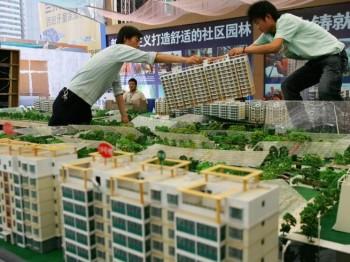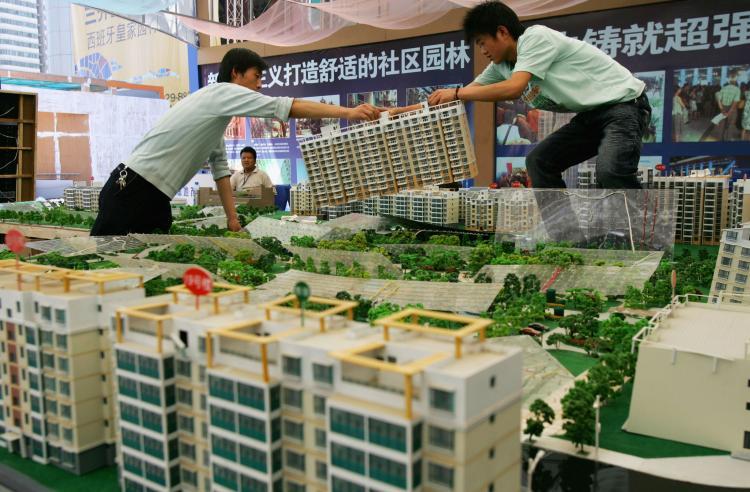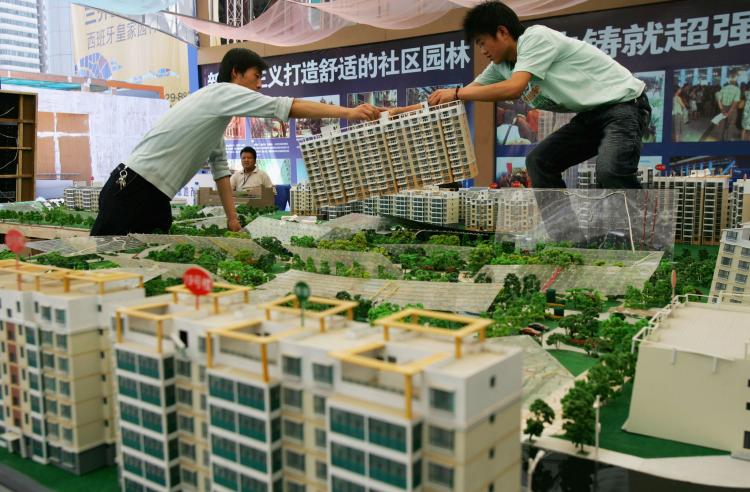Jenna Qin (an alias), a teacher of Chinese in Shenzhen, has to move into a new apartment after her rent went up by 300 yuan (approximately US$45), at least a 20 percent increase over what she was paying.
“I have to change apartments, and I have to raise the cost of class for students. But everyone is having a hard time so it’s very difficult to do.”
“This has had a huge impact. I suddenly feel that the pressure is big. And the landlord has become unfriendly. I feel the pressures of life are getting bigger and bigger,” she said in telephone and e-mail interviews.
For years now, and especially since the start of 2010, there has been speculation about when China’s real estate bubble will burst. Experts are divided on how bad the bubble is, and on the timing, probability, or ramifications of it bursting.
But in the meantime the “old one hundred names,” or “laobaixing” as the Chinese call the common people, are toiling under the pressure of rising housing prices and a rising cost of living.
Ping Hu, who works in marketing also in Shenzhen, says his rent recently went up 100 yuan, from 300 to 400 yuan per month. “Of course this has had a big impact on my life,” he said.
In the circles he moves in, the average monthly salary might be 2,000 yuan (US$305). “When the rent is 400 and food is 600 or 700, at the end of the month if you don’t have other costs you’re only left with less than 1,000 yuan,” he said in a written interview on Skype. He lives on the outskirts of the city—but in the city center rent can shoot up.
But it’s not just rent that’s rising. “Vegetable prices have risen severely,” he said. “Everything’s going up in price.”
Rental prices for apartments went up by 15 percent in Beijing from 2010 to 2011, 10 percent in Shanghai, and 20 percent in Guangzhou, according to recent statistics.
The Communist Party has attempted to defray the fallout in typical fashion: massive, top-down building projects of low-cost housing blocks. They plan to spend 1.3 trillion yuan (US$ 200 billion) to build 10 million housing units in 2011.
The efficacy these building projects will have in brightening conditions for the working poor is as yet unclear. Whenever the Party issues edicts with massive bundles of cash attached, a portion of it goes missing as communist administrators and their contractors cut corners and line their pockets.
Inflation has increased steadily this year, and in January consumer prices rose the most in more than six years. And analysts say it’s going to get worse.
Prices of raw materials, like copper and anything involved in the construction of buildings, have been going up partly because of speculation, according to Andrew McCann, an investment analyst in New York.
In response the regime has set price controls and begun handing out subsidies. Since China is a command economy, it is easier for the regime to be tough on businesses for raising prices. Officials have called together big retailers like Carrefour, Wal-Mart Stores Inc., and others, telling them that China has an inflation problem, and they have to keep their prices down, McCann said.
But that’s not a strategy for the long term. “Price controls and subsidies can only last for so long because it screws with market mechanics,” says McCann. “If input prices are going up, everything is going up. … And they’re not allowed to raise their prices, then they start to lose money and they can only lose money for so long,” he said.
He added, “Businesses in China managed to hold the prices down up until six or eight months ago. But there’s a time when you have to pass the cost onto your consumer because you wouldn’t make a profit otherwise.” And then the cost of life in China goes up again for ordinary Chinese.
“I have to change apartments, and I have to raise the cost of class for students. But everyone is having a hard time so it’s very difficult to do.”
“This has had a huge impact. I suddenly feel that the pressure is big. And the landlord has become unfriendly. I feel the pressures of life are getting bigger and bigger,” she said in telephone and e-mail interviews.
For years now, and especially since the start of 2010, there has been speculation about when China’s real estate bubble will burst. Experts are divided on how bad the bubble is, and on the timing, probability, or ramifications of it bursting.
But in the meantime the “old one hundred names,” or “laobaixing” as the Chinese call the common people, are toiling under the pressure of rising housing prices and a rising cost of living.
Ping Hu, who works in marketing also in Shenzhen, says his rent recently went up 100 yuan, from 300 to 400 yuan per month. “Of course this has had a big impact on my life,” he said.
In the circles he moves in, the average monthly salary might be 2,000 yuan (US$305). “When the rent is 400 and food is 600 or 700, at the end of the month if you don’t have other costs you’re only left with less than 1,000 yuan,” he said in a written interview on Skype. He lives on the outskirts of the city—but in the city center rent can shoot up.
But it’s not just rent that’s rising. “Vegetable prices have risen severely,” he said. “Everything’s going up in price.”
Rental prices for apartments went up by 15 percent in Beijing from 2010 to 2011, 10 percent in Shanghai, and 20 percent in Guangzhou, according to recent statistics.
The Communist Party has attempted to defray the fallout in typical fashion: massive, top-down building projects of low-cost housing blocks. They plan to spend 1.3 trillion yuan (US$ 200 billion) to build 10 million housing units in 2011.
The efficacy these building projects will have in brightening conditions for the working poor is as yet unclear. Whenever the Party issues edicts with massive bundles of cash attached, a portion of it goes missing as communist administrators and their contractors cut corners and line their pockets.
Inflation has increased steadily this year, and in January consumer prices rose the most in more than six years. And analysts say it’s going to get worse.
Prices of raw materials, like copper and anything involved in the construction of buildings, have been going up partly because of speculation, according to Andrew McCann, an investment analyst in New York.
In response the regime has set price controls and begun handing out subsidies. Since China is a command economy, it is easier for the regime to be tough on businesses for raising prices. Officials have called together big retailers like Carrefour, Wal-Mart Stores Inc., and others, telling them that China has an inflation problem, and they have to keep their prices down, McCann said.
But that’s not a strategy for the long term. “Price controls and subsidies can only last for so long because it screws with market mechanics,” says McCann. “If input prices are going up, everything is going up. … And they’re not allowed to raise their prices, then they start to lose money and they can only lose money for so long,” he said.
He added, “Businesses in China managed to hold the prices down up until six or eight months ago. But there’s a time when you have to pass the cost onto your consumer because you wouldn’t make a profit otherwise.” And then the cost of life in China goes up again for ordinary Chinese.







